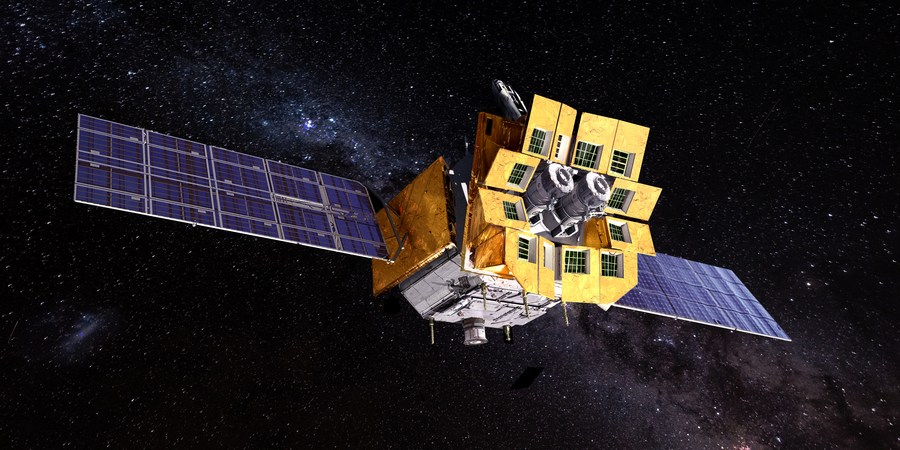China's Einstein Probe to Observe Changing Universe

Conceptual?model?of?Einstein Probe.?(PHOTO:?CAS,?Handout?by?XINHUA)
By MIAO Qing
China plans to launch a new X-ray astronomical satellite, Einstein Probe (EP), by the end of this year. The satellite project has entered the final stage of development, according to the National Astronomical Observatories of the Chinese Academy of Sciences.
This satellite is expected to capture the first light of supernova explosions, search for and pinpoint the sources of gravitational wave, discover more distant and darker objects, and observe transient phenomena in deep space.
X-ray is an essential tool for investigating transient energy bursts, capable of unveiling mysterious phenomena such as a black hole consuming a star or a star flaming in its final moments, by analyzing intricate fluctuations in brightness.
Despite its potential, few X-ray sources have been identified to date. Further explorations of these events require advanced detection equipment with an extremely large field of view, high sensitivity, high resolution, and rapid response capabilities.
Regarding these requirements, scientists drew inspiration from the unique structure of lobster eyes. Previous research conducted by biologists revealed that the eyes of lobsters consist of countless tiny square tubes arranged in a way that all point towards the same spherical center, which provides the lobster with an extensive field of view.
Taking cues from this natural phenomenon, Chinese scientists have successfully designed and built the EP satellite which allows for a large field of view, high sensitivity and rapid sky-scanning observation in X-ray band.







